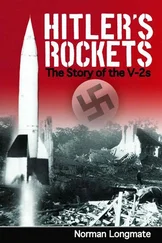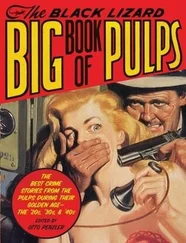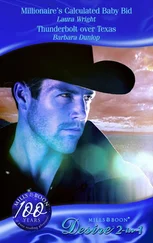Mike Mullane - Riding Rockets
Здесь есть возможность читать онлайн «Mike Mullane - Riding Rockets» весь текст электронной книги совершенно бесплатно (целиком полную версию без сокращений). В некоторых случаях можно слушать аудио, скачать через торрент в формате fb2 и присутствует краткое содержание. Жанр: Старинная литература, на английском языке. Описание произведения, (предисловие) а так же отзывы посетителей доступны на портале библиотеки ЛибКат.
- Название:Riding Rockets
- Автор:
- Жанр:
- Год:неизвестен
- ISBN:нет данных
- Рейтинг книги:3 / 5. Голосов: 2
-
Избранное:Добавить в избранное
- Отзывы:
-
Ваша оценка:
- 60
- 1
- 2
- 3
- 4
- 5
Riding Rockets: краткое содержание, описание и аннотация
Предлагаем к чтению аннотацию, описание, краткое содержание или предисловие (зависит от того, что написал сам автор книги «Riding Rockets»). Если вы не нашли необходимую информацию о книге — напишите в комментариях, мы постараемся отыскать её.
Riding Rockets — читать онлайн бесплатно полную книгу (весь текст) целиком
Ниже представлен текст книги, разбитый по страницам. Система сохранения места последней прочитанной страницы, позволяет с удобством читать онлайн бесплатно книгу «Riding Rockets», без необходимости каждый раз заново искать на чём Вы остановились. Поставьте закладку, и сможете в любой момент перейти на страницу, на которой закончили чтение.
Интервал:
Закладка:
Not only did my mom give up her vacuum extension (and henceforth had to vacuum like a scoliosis victim), she also let me use her iron to heat plastic to form parachutes for my capsule payloads of ants and lizards. That work destroyed her iron. She let me use her oven to bake recipes of foul-smelling, fertilizer-based rocket fuel. My dad’s extensive tools were at my disposal, as was his time. He would drive me to machine shops to have nozzles turned on lathes, and to chemical supply companies to purchase rocket fuel ingredients. He would drive me and my bombs into the desert. There he would rise onto his braces and crutches and hold a Super-8 movie camera on the action. I would set up the rocket and lay wire to the car battery. Dad would offer an irreverent prayer that the rocket would land on Khrushchev’s head, then he would recite a short countdown. At zero I would touch the wires to the battery and hope for the best. Sometimes that best was a perfect streak of smoke leading a thousand feet into the azure blue. A white puff would mark the firing of the parachute extraction rocket and we would be treated to the glorious sight of my Maxwell House coffee can capsule descending on a parachute of dry-cleaning plastic and kite string.
More frequently, however, my launches closely mirrored NASA’s. At the count of zero an explosion would rend the air and a sulfurous cloud would be all that remained of my creation. My dad, ever the optimist, would opine that the rocket had gone into orbit or possibly hit the moon. We would remain silent and listen for any sound of a whine or thud of an impact, but there would be none. That was proof enough for my father that the rocket was on its way to the Kremlin.
During one launch my dad was nearly a casualty. He was whooping and hollering at what appeared to be a perfect ascent until the missile arced into a dive straight for us. “Jesus Christ, Mike! It’s coming right at us!” He was ten feet from the car and did his best to sprint for its cover. With the clatter of steel braces and aluminum crutches he sounded like a machine gone wild. I was powerless to help and abandoned him like a dropped Popsicle. I dove under the car and turned to look up, certain I was going to witness my dad getting shish-kebabed by a five-foot smoking skewer. I made one final, not so helpful cry, “Watch out, Dad!”
“Balls!” he roared. As a whistling sound gained in decibels, Dad suddenly stopped and jerked himself into a ramrod-straight pose, holding his crutches as close to his body as possible, trying to minimize his target footprint. His face was scrunched up, eyes squeezed to slits, teeth bared. There was a brief whooshing sound followed by a loud whoomph. The rocket embedded itself in the sandy soil no more than ten feet away. A thin curl of smoke corkscrewed from its nozzle.
“Christ on a crutch, that was close, Mike.”
Dad christened that rocket the “Kamikaze,” which set him off on another story about how a damn Jap kamikaze had almost rammed his plane. “I emptied my twin 50s at the bastard and never landed a hit. But he missed us anyway, just like that rocket.”
As 1957 drew to a close, I was filled with anticipation. Not because of any party to celebrate the New Year, but rather because 1958 was to be the IGY, the International Geophysical Year. If there was ever a measure of how consumed I was by space, this was it…that I was as impatient for the IGY to arrive as most kids were for the end of school. I had read about it in several science magazines. A host of countries were to cooperatively investigate space with sounding rockets and instrumented balloons, and the United States was going to launch its own satellites. I couldn’t wait.
My greatest treasure of this epoch was the book Conquest of Space by Willy Ley. Forget Homer and Shakespeare and Hemingway. They were hacks. For me Willy Ley was the greatest writer of all time. His descriptions of spaceflight supplemented by Chesley Bonestell’s magnificent space paintings launched me into orbit decades before a NASA rocket.
“…there will be zero hour, zero minute, and zero second, and then the roaring bellow from the exhaust nozzles of the ship…the ship will ride up on the roaring flames, disappearing in the sky in less than a minute…
“The earth will be a monstrous ball somewhere behind the ship, and the pilot will find himself surrounded by space. Black space, strewn all over with the countless jewels of distant suns, the stars. Stretching across the great blackness the pilot will see the Milky Way.”
To my twelve-year-old brain there was no more wonderful prose written in any language anywhere. I could see that great ball of Earth. I could see those stars. I could see the deep blackness. I read the book again and again. I read it until the pages came unhinged. I consumed Bonestell’s paintings like other boys ogled the breasts of African natives in National Geographic. There were illustrations of astronauts watching a “canalled” Mars from one of its moons, Deimos. Other paintings showed spacesuited explorers walking among the mountains of our moon and on the gravel desert of Saturn’s moon, Mimas. The subtitle on Ley’s book said it all, “A preview of the greatest adventure awaiting mankind.”
As soon as there was a NASA, I became its number-one fan. I watched every launch on TV. I wrote for photos and stuck them on the walls of my bedroom. I knew at sight every missile in the U.S. arsenal…Redstone, Vanguard, Jupiter, Thor, Atlas, Titan. I could recite their height, thrust, and payload weight. I learned NASA’s vocabulary: apogee, perigee, payload, LOX, A-okay. I sent NASA drawings of my own rockets and gave them helpful suggestions on how they might build better missiles. I followed the trials and tribulations of NASA’s program with the same passion other kids followed their favorite ball team. When the Mercury 7 astronauts were announced I memorized their biographies and pored over Life magazine’s photo-essays on them and their machines. I couldn’t wait to be one of them and constructed a fantasy in which I would actually replace them. One of the points continually raised in the news was the anemic thrust of NASA’s rockets. The United States launched grapefruit-size satellites while the Russian payloads were measured in tons. I was convinced, when all was said and done, Alan Shepard and John Glenn and the other astronauts would be too heavy to be blasted into orbit. In my dream NASA would be unable to find any adult test pilot light enough for one of their rockets to lift. They would then search among the skinny kids of America to staff the astronaut corps. I wrote to NASA with that very suggestion, making sure my name and address were prominent.
The rockets and posters and sky watching weren’t enough. Astronauts were pilots. I had to fly. At age sixteen I began flying lessons. After a dozen hours my instructor deemed me safe enough to solo. There are some memories so seared into our synapses we carry them to our graves—our first sexual experience, the birth of our children, combat, the death of a loved one. I can include my first solo flight in those memories that will play in full Technicolor in my age-addled brain. Four decades later I can still feel the adrenaline-boosted flutter of my heart as I taxied onto the runway and glanced at that empty right seat. My left hand gripped the yoke so tightly I’m surprised I didn’t liquefy the plastic. My right hand was welded to the ball of the throttle. I lifted my feet from the brakes, slid the throttle to the firewall, and the machine slipped down the runway. I had never experienced a sound more sweet than the roar of that 100-horsepower engine. I eased the yoke back and watched the Earth fall away. Even in my later space shuttle launches I doubt my heart was pounding as it was at this moment in my life. I was flying! Later I walked to the car with the three most wonderful words in the English language written in my logbook: Cleared for solo .
Читать дальшеИнтервал:
Закладка:
Похожие книги на «Riding Rockets»
Представляем Вашему вниманию похожие книги на «Riding Rockets» списком для выбора. Мы отобрали схожую по названию и смыслу литературу в надежде предоставить читателям больше вариантов отыскать новые, интересные, ещё непрочитанные произведения.
Обсуждение, отзывы о книге «Riding Rockets» и просто собственные мнения читателей. Оставьте ваши комментарии, напишите, что Вы думаете о произведении, его смысле или главных героях. Укажите что конкретно понравилось, а что нет, и почему Вы так считаете.












